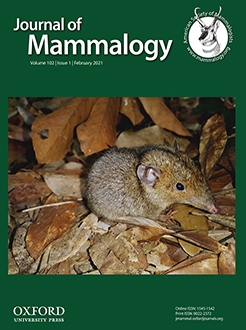Alternative reproductive tactics occur when conspecifics of the same sex use different behavioral processes to maximize reproductive success. Resource availability can have significant impacts on the proximate factors impacting the success and persistence of alternative tactics, such as an individual's physiology, immunity, and body condition. Male Cape ground squirrels (Xerus inauris) display two alternative tactics, with some mature males dispersing from their natal groups and joining bands of nonrelated males (band males), whereas others do not disperse and remain philopatric in their natal groups past sexual maturation (natal males). Despite differences in metabolism, home ranges, and behavior, there is no difference in reproductive success between the two tactics, allowing us to test if rainfall (as a measure of primary productivity) influences body condition and physiological indices in tactics when fitness is equal. Over a period of 6 years, rainfall was positively related to body condition (mass–spine length residuals) in band males (N = 76), but not in natal males (N = 75). When we followed 18 males prior to and after dispersal, we also found a positive relationship between body condition and age following dispersal, but not prior to dispersal, and natal males maintained a better body condition in low rainfall years. During 2 years of low rainfall, band males (N = 39) had higher total ectoparasite abundance, and white blood cell differentials, implying they are less able to tolerate parasitic infection than natal males (N = 31). We found no difference in bacterial growth inhibition between tactics, suggesting that band and natal males both are equally resistant to parasites. The poorer body condition of band males during lower rainfall suggests they are less tolerant to parasites in these years. Dispersal during years of low rainfall thus may increase the costs to body condition and parasite infection, but the reproductive benefit of overlapping with more females may contribute to maintaining equal fitness between tactics.
How to translate text using browser tools
21 January 2021
Alternative tactics in male African ground squirrels: the impact of variable rainfall on condition and physiology
Kelsey A. O'Brien,
Jane M. Waterman,
Nigel C. Bennett
ACCESS THE FULL ARTICLE

Journal of Mammalogy
Vol. 102 • No. 1
February 2021
Vol. 102 • No. 1
February 2021
body condition
dispersal status
parasites
resources
sociality
testosterone




